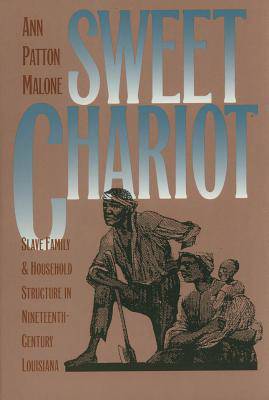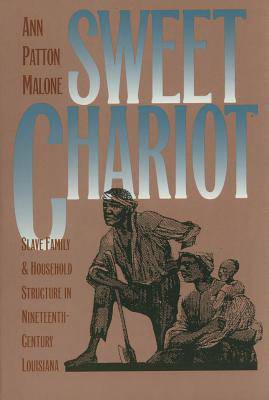
- Afhalen na 1 uur in een winkel met voorraad
- Gratis thuislevering in België vanaf € 30
- Ruim aanbod met 7 miljoen producten
- Afhalen na 1 uur in een winkel met voorraad
- Gratis thuislevering in België vanaf € 30
- Ruim aanbod met 7 miljoen producten
Sweet Chariot
Slave Family and Household Structure in Nineteenth-Century Louisiana
Ann Patton MaloneOmschrijving
Sweet Chariot is a pathbreaking analysis of slave families and household composition in the nineteenth-century South. Ann Malone presents a carefully drawn picture of the ways in which slaves were constituted into families and households within a community and shows how and why that organization changed through the years. Her book, based on massive research, is both a statistical study over time of 155 slave communities in twenty-six Louisiana parishes and a descriptive study of three plantations: Oakland, Petite Anse, and Tiger Island.
Malone first provides a regional analysis of family, household, and community organization. Then, drawing on qualitative sources, she discusses patterns in slave family household organization, identifying the most significant ones as well as those that consistantly acted as indicators of change. Malone shows that slave community organization strongly reflected where each community was in its own developmental cycle, which in turn was influenced by myriad factors, ranging from impersonal economic conditions to the arbitrary decisions of individual owners. She also projects a statistical model that can be used for comparisons with other populations.
The two persistent themes that Malone uncovers are the mutability and yet the constancy of Louisiana slave household organization. She shows that the slave family and its extensions, the slave household and community, were far more diverse and adaptable than previously believed. The real strength of the slave comunity was its multiplicity of forms, its tolerance for a variety of domestic units and its adaptability. She finds, for example, that the preferred family form consisted of two parents and children but that all types of families and households were accepted as functioning and contributing members of the slave community.
"Louisiana slaves had a well-defined and collective vision of the structure that would serve them best and an iron determination to attain it, " Malone observes. "But along with this constancy in vision and perseverance was flexibility. Slave domestic forms in Louisiana bent like willows in the wind to keep from shattering. The suppleness of their forms prevented domestic chaos and enabled most slave communities to recover from even serious crises."
Specificaties
Betrokkenen
- Auteur(s):
- Uitgeverij:
Inhoud
- Aantal bladzijden:
- 412
- Taal:
- Engels
- Reeks:
Eigenschappen
- Productcode (EAN):
- 9780807845905
- Verschijningsdatum:
- 5/02/1996
- Uitvoering:
- Paperback
- Formaat:
- Trade paperback (VS)
- Afmetingen:
- 157 mm x 235 mm
- Gewicht:
- 657 g

Alleen bij Standaard Boekhandel
Beoordelingen
We publiceren alleen reviews die voldoen aan de voorwaarden voor reviews. Bekijk onze voorwaarden voor reviews.








